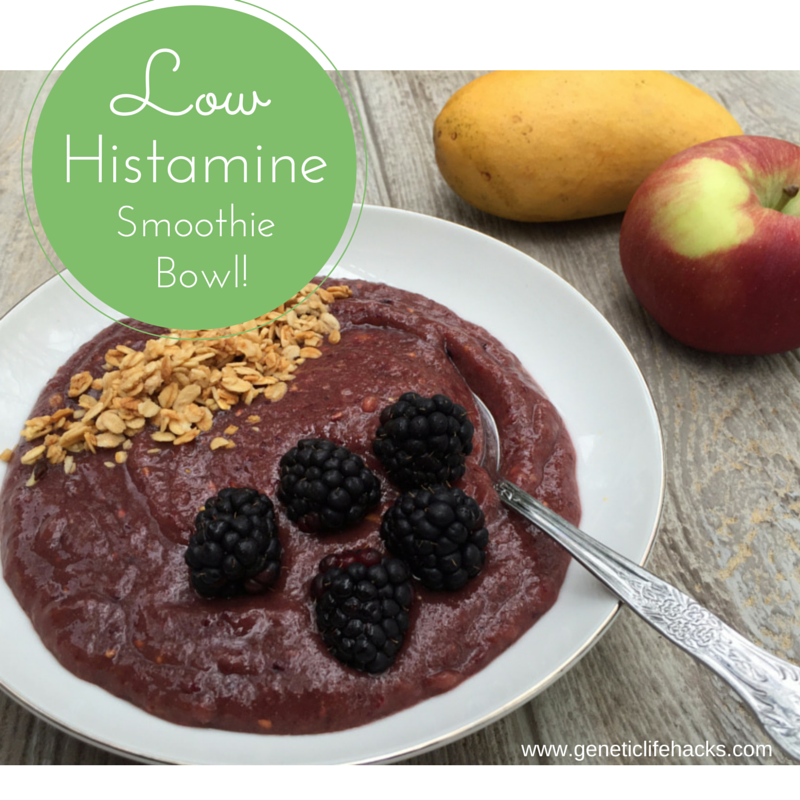It can be difficult sometimes to come up with new breakfast ideas when on a low histamine diet. Yogurt can be a problem for some people, and spinach or strawberries in a smoothie are sure to make my sinuses start to drain.
~ Learn more about how your genes impact histamine intolerance ~
Here is a recipe for a smoothie bowl that I like as quick breakfast. Somehow making the smoothie a little thicker and eating it with toppings makes it more satisfying – at least to me!
Take this ‘recipe’ just as inspiration and adjust it to fit the fruits and veggies that work best for you. Cherries may bother some people on a low histamine diet. They do contain quercetin, though, which is supposed to help prevent histamine release.
Low Histamine Smoothie Bowl Recipe
- Mango
- Apple
- a handful of frozen, organic cherries (sweet or tart)
- Blackberries
- Carrots (optional)
Blend everything together in a good blender until the consistency of apple sauce.
Topping ideas:
- granola (gluten-free, no cinnamon)
- blackberries or chopped mango
About Genetic Lifehacks:
This website explains the recent research on genetics – breaking it down so that you can actually use it. The articles take you through the background science, show you what to look at in your data, and then explain the Lifehacks you could use to optimize your health.
If you have your 23andMe or AncestryDNA data, join in on learning how to optimize your health.
Related articles:

